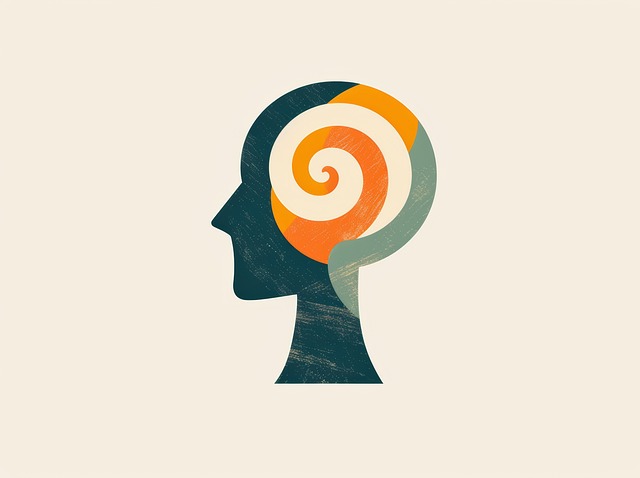Risk assessment is crucial in therapy for adults addressing spiritual-religious issues, focusing on harm minimization. Therapists meticulously evaluate potential risks and impacts, tailoring strategies based on individual vulnerabilities, religious beliefs, and intervention consequences. Techniques like Social Skills Training, Self-Awareness Exercises, and Communication Strategies create a safe, respectful environment, enhancing client safety and encouraging exploration of faith. Holistic approaches, including mindfulness meditation and journaling, integrate diverse beliefs and coping tools, fostering mental wellness through present-moment awareness. Continuous monitoring and adaptation, leveraging Compassion Cultivation and Mindfulness Meditation, ensure successful harm minimization strategies tailored to each client's unique spiritual-religious needs.
Risk assessment and harm minimization planning are essential cornerstones of safe therapeutic practice, especially when addressing complex issues like spiritual-religious beliefs. This article explores these critical aspects in depth, guiding therapists through understanding risk assessment as a foundational tool. We delve into identifying and evaluating potential harms, developing practical minimization strategies, and implementing effective monitoring systems for continuous safety in therapy, particularly tailored to adults grappling with spiritual-religious issues.
- Understanding Risk Assessment: A Cornerstone of Safe Practice
- Identifying and Evaluating Harms: Spiritual-Religious Context
- Developing Effective Minimization Strategies: Practical Considerations
- Implementation and Monitoring: Ensuring Continuous Safety in Therapy
Understanding Risk Assessment: A Cornerstone of Safe Practice

Risk assessment is a fundamental aspect of therapy for adults addressing spiritual-religious issues. It involves meticulously evaluating potential risks and their likely impact to guide harm minimization planning. By systematically identifying hazards within the therapeutic context, practitioners can proactively implement strategies to safeguard clients’ well-being. This process demands careful consideration of individual vulnerabilities, the nature of religious beliefs, and the potential consequences of certain interventions.
A robust risk assessment framework enables therapists to tailor their approach, incorporating relevant Social Skills Training, Self-Awareness Exercises, and Communication Strategies. These measures ensure that therapy remains supportive and respectful while mitigating any adverse effects. This proactive stance not only enhances client safety but also fosters a positive therapeutic environment, encouraging open exploration of spiritual-religious matters.
Identifying and Evaluating Harms: Spiritual-Religious Context

Identifying potential harms within a spiritual or religious context is a delicate yet crucial step in risk assessment for therapy sessions catering to adults dealing with spiritual-religious issues. This involves recognizing that beliefs and practices can vary widely, and what may be harmful for one individual could be integral to another’s identity. Therapists must therefore create a safe space where clients feel comfortable exploring their faith or lack thereof without fear of judgment.
Evaluating these harms requires an understanding of the client’s spiritual-religious background and the potential impact on their mental wellness. For instance, certain practices or beliefs might contribute to internal conflict or external stress when confronted with alternative perspectives or therapeutic interventions. By integrating conflict resolution techniques into harm minimization planning, therapists can help clients navigate these challenges respectfully, fostering a positive environment that supports both therapy goals and the client’s spiritual-religious needs.
Developing Effective Minimization Strategies: Practical Considerations

When developing harm minimization strategies, a holistic approach is essential, especially when addressing sensitive areas like spiritual-religious issues in adult therapy. It’s crucial to recognize that individuals have diverse beliefs and practices, and tailoring interventions accordingly is vital. One effective method is incorporating mindfulness meditation techniques into therapeutic routines. This ancient practice can help clients cultivate present-moment awareness, manage stress reduction methods, and enhance overall mental wellness. By providing guidance through journaling exercises, therapists enable individuals to explore their thoughts and emotions while fostering self-reflection and personal growth.
Additionally, integrating specific spiritual or religious practices, if relevant and consensual, can be beneficial. For example, some clients may find comfort in guided meditation sessions focused on spiritual themes or engaging in activities that align with their faith. These approaches not only respect individual beliefs but also offer tools for coping and self-care, contributing to a more comprehensive therapy experience.
Implementation and Monitoring: Ensuring Continuous Safety in Therapy

The successful implementation of harm minimization strategies within therapy for adults addressing spiritual-religious issues requires ongoing monitoring and adaptation. Once a risk assessment is conducted and mitigation plans are put in place, it’s crucial to continually evaluate their effectiveness. This involves regular check-ins with clients to gauge their well-being and any emerging concerns, as well as frequent reviews by therapists to ensure the strategies remain relevant and beneficial.
Through diligent monitoring, professionals can identify if certain practices, such as Compassion Cultivation Practices or Mindfulness Meditation techniques, are fostering positive outcomes in the client’s mental wellness. This feedback loop allows for adjustments to be made in real-time, whether it be refining existing interventions or introducing new elements from the Mental Wellness Podcast Series Production, ultimately ensuring a safe and supportive therapeutic environment.
Risk assessment and harm minimization planning are essential components of safe and effective therapy for adults addressing spiritual-religious issues. By understanding risk factors, identifying potential harms, and implementing strategic minimization strategies, therapists can create a secure environment that promotes healing. Continuous monitoring ensures ongoing safety, allowing individuals to explore sensitive topics with confidence. This holistic approach not only respects clients’ beliefs but also empowers them to navigate their challenges with resilience and growth.








